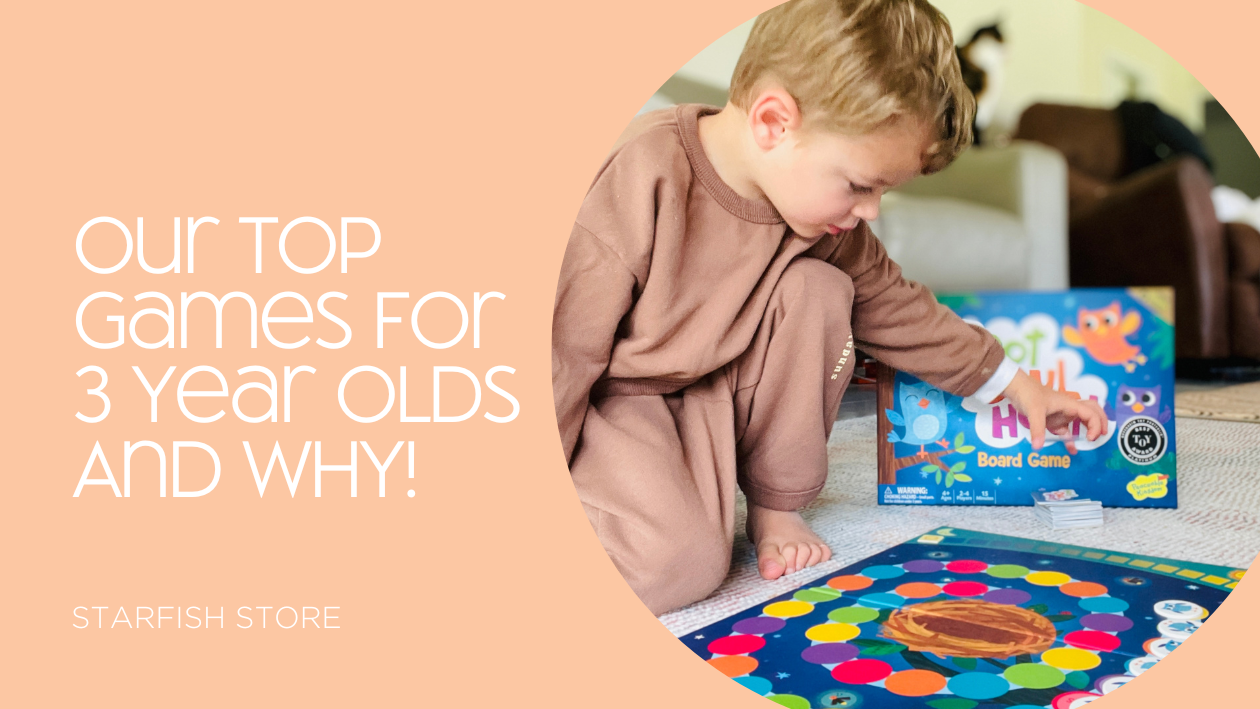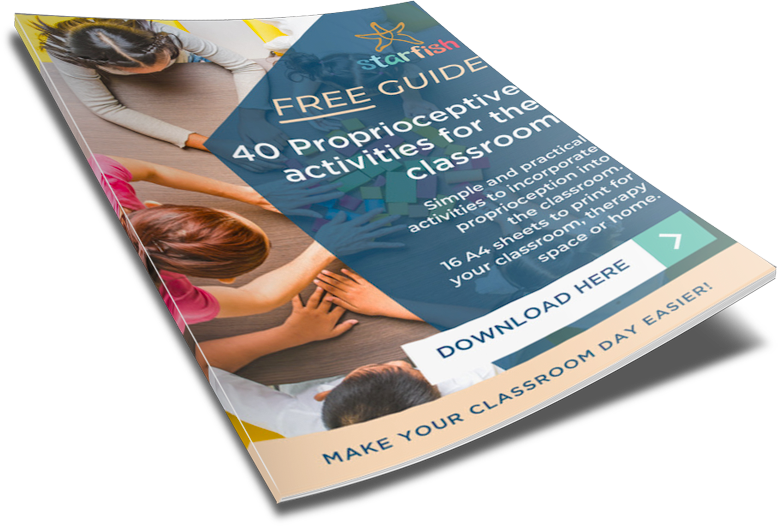Your Cart is Empty
NDIS Approved Provider | Trusted by 200+ industry professionals | 25 years of expert knowledge & Experience

As parents and teachers, we understand the importance of fostering early development in our little ones.
Playing board games with friends and family is not only a fun activity, but it also provides numerous developmental benefits. From improving social skills to enhancing cognitive abilities, board games offer a well-rounded learning experience for children.
Join us as we explore the benefits of playing board games with 3 year olds and share our top picks for games that are perfect for this age group.
Children learn vital social skills such as, how to:

Good games also have valuable developmental skills embedded.
Games might involve physical skills such as fine motor (e.g. using tweezers, or moving small pieces), gross motor (e.g. charades), visual perception (e.g. memory games).
Games might require more “academic” skills such as knowing colours, numerals, or counting.
When a child is around 3 years of age, they definitely can start playing games. Enjoy the fun and bonding time together. Capitalise on the opportunities that games provide for your child to develop key skills.
It's also a great way to incorporate screen-free play into your activities. Children who do spend more time in front of a screen have been proven to have reduced thinking/reasoning power and language processing ability, as well as other developmental issues.

Premise: Duck Duck Dance gets kids moving as they follow simple dance instructions that have them quacking, flapping, and waddling like ducks.
The game encourages children to imitate the actions of the ducks on the cards, promoting physical activity in a fun and engaging way. The playful nature of the game helps children develop coordination and rhythm as they dance along.
Knowledge/Skill: This game promotes physical activity, coordination, and the ability to follow directions.
Info: Duck Duck Dance is perfect for energetic 3-year-olds who love to move. The game encourages children to get up and dance while practicing coordination and following instructions, making it a fun way to develop motor skills.
Players: 2 to 6 players.

Premise: In Hoot Owl Hoot, players work together to help a group of owls fly back to their nest before the sun comes up. The game board features a path that the owls must follow, with spaces in different colours.
Players draw cards that dictate the colour of the space the owl must move to next, but if a sun card is drawn, the sun token advances closer to the top of the board.
The goal is to get all the owls home before the sun rises, fostering a sense of teamwork and collective strategy.
Knowledge/Skill - This game encourages teamwork, colour recognition, and strategic thinking as children cooperate to achieve a common goal.
Info - With simple rules and a focus on collaboration, Hoot Owl Hoot is an ideal introduction to cooperative gameplay for young children. This game teaches the importance of working together while reinforcing colour identification.
Players:2 to 4 players.

Premise: In Chickyboom, players take turns removing wooden chickens, wagon wheels, and hay bales from a precariously balanced perch. The challenge is to carefully choose which items to remove without tipping the perch and causing everything to fall.
Each item has a different point value, so players must strategise to collect the most points while maintaining the balance.
Knowledge/Skill: This game teaches balance, fine motor skills, and cause-and-effect reasoning.
Info: The colourful wooden pieces and simple concept make Chickyboom a delightful game that encourages careful thinking and hand-eye coordination. It’s an excellent choice for developing patience and precision in young children.
Players: 2 to 4 players.

Premise - Pass the Bomb Junior adds a thrilling twist to word games by incorporating a ticking "bomb" that gets passed around the circle.
Each player must think of a word that fits the given category before passing the bomb to the next person. The challenge is to come up with a word quickly, as the bomb could "explode" at any moment, creating a sense of urgency and excitement that encourages fast thinking and creativity.
Knowledge/Skill - Pass the Bomb Junior helps expand vocabulary, improve word recall, and encourages quick thinking under pressure.
Info - This thrilling game adds a layer of excitement to wordplay, making learning new words fun and dynamic. It’s a great way to introduce language skills in a playful and engaging way.
Players: 2 to 12 players.

Premise: Monkey Around is an active game where children draw cards that prompt them to perform fun physical activities, like balancing on one foot, hopping, or giving a high-five.
This game is designed to get kids moving and interacting with each other, helping them develop motor skills and coordination while also encouraging social play.
Knowledge/Skill: Playing Monkey Around helps develop motor skills, coordination, and social interaction.
Info: This lively game is great for physical activity and social bonding. It’s perfect for young children who need to burn off energy while practicing coordination and engaging with others in a playful environment.
Players: 2+
Cooperative games remove the “pressure” of winning or losing. Cooperative games give the opportunity to model vital game playing behaviour and skills in a friendly non-competitive way.
Because cooperative games have all the players working collaboratively, they are a wonderful way to build relationships and promote positive time together. In a nutshell, in a cooperative game, every player is on the same team/side.
You still take turns, you still play by the rules. But everyone works together to try and beat the game (or the villain character). If one wins, everyone wins. And, if we lose, everyone loses.
On the other hand, competitive games shouldn't be outlawed. They are great for improving self-esteem, bringing people together, developing skills and challenging yourself especially when matched with your peers or to those with similar ability.
As humans, we also get pleasure out of learning, and competitive games give an honest measure for this. Getting better scores and winning more games is a clear indication of this.
In summary, we believe there should be a healthy mix of competitive and cooperative games in the games cupboard. It's good to mix it up from time to time, to see what works for you and your children.
We have a comprehensive blog "Games that bring people together" that goes more in detail about cooperative games. Click the link below to be learn more.
Have you played any of these games with your 3 year old? What did you think?
Do you have any other favourite games for 3 year olds? We’d love a heads up - if we don't stock them, maybe we need to!
If you also enjoyed this post and found it helpful/interesting, we'd love for you to let us know and for you to share it with your friends and family.
We have big plans for our blog posts. By sharing, you truly help us grow. So, thank you.
Kirstie and The Starfish team.
Kirstie Wishart M.Ed (Special Education).
Owner and founder of The Starfish Store. Kirstie’s professional life has included: teaching (in both public and private schools in Australia, New Zealand and Thailand), lecturer and subject coordinator at the University of Wollongong, Educational consultant (working with children and young people with a trauma background), OoHC Case Work Manager, and Specialist Tutor (working with children and young people with significant learning difficulties and/or disabilities).

40 Proprioceptive activities for the classroom. Simple and practical activities to incorporate Proprioceptive into the classroom. 16 A4 sheets to print for your classroom, therapy space or home.